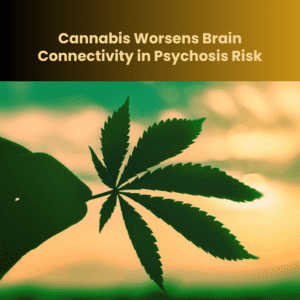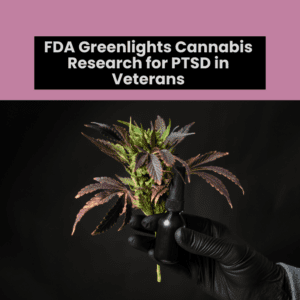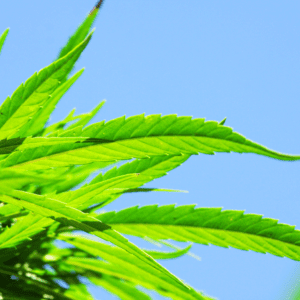Florida Hemp Industry Relieved as DeSantis Vetoes Delta-8 THC Ban

The hemp community in Florida is breathing a collective sigh of relief following Gov. Ron DeSantis’s (R) veto of a bill that they say, if signed, would have presented an existential threat to their livelihoods.
Proposed Bill and Industry Concerns
The measure, SB 1698, would have imposed regulations on intoxicating hemp-derived products in the state, including strict limits on THC levels and a complete ban on the sale of delta-8 THC. In the nearly three months since the bill was passed, the governor’s office was inundated with calls for him to veto it.
In his letter explaining his veto, DeSantis responded to warnings that it would deal a blow to tens of thousands of people working in the industry.
Governor’s Reasoning
“Small businesses are the cornerstone of Florida’s economy,” he wrote. “While Senate Bill 1698’s goals are commendable, the bill would, in fact, impose debilitating regulatory burdens on small businesses and almost certainly fail to achieve its purposes. Senate Bill 1698 would introduce dramatic disruption and harm to many small retail and manufacturing businesses in Florida—businesses that have emerged due to recent legislation paving the way for the commercial use of hemp.”
Specifics of the Bill
The law would have imposed a cap on delta-9 THC levels in hemp products, restricting them to 5 milligrams per serving and 50 milligrams per container. A last-minute amendment upped those limits from the original proposal of 2 milligrams per serving and 10 milligrams per package. It would have banned all delta-8 THC products in the state.
Industry Reactions
“It would have been a massive, massive blow to the industry,” said Zack Kobrin, a Fort Lauderdale attorney with the firm of Saul Ewing who works in the cannabis and hemp industry. “The bill did not attempt to regulate the product. It just wanted to stop sales.”
Total sales from hemp businesses totaled more than $10 billion in Florida in 2022, according to a 2023 analysis from Whitney Economics. The report stated that the industry employs approximately 104,000 workers earning in excess of $3.6 billion in annual wages.
Potential Business Relocation
If this bill had been signed into law, “a number of these companies would have picked up and moved to another state,” Kobrin said. “I know that for a fact from talking to [hemp entrepreneurs]. They were looking at where are the states that are potentially not as antagonistic to the hemp industry. It would have been pretty bad for the industry, and we would have lost a lot of jobs and a lot of businesses.”
Relief Among Business Owners
“We’re definitely happy that the governor listened to the many small businesses and voices that reached out to him directly for him to veto 1698,” said Vinnie Seudath with Kushy Pies in Tampa. “We’re feeling good today.”
Carlos Hermida, who owns smoke shops in Tampa and St. Petersburg, said the bill would have been detrimental to his business. “Hemp products are my second best-selling product, and since I’ve been selling hemp for so long it kind of dominates my shelves,” he wrote in a text message. “I estimate that I would have had to remove about 75% of my hemp products off my shelves.”
Republican Stance
Despite the concerns voiced by those in the hemp industry, Republicans have been relatively unsympathetic. Senate President Kathleen Passidomo and Manatee County Republican Tommy Gregory, sponsor of the bill in the House, have defended the measure, characterizing it as well-considered and necessary.
Governor’s Veto History
This was only the third bill that DeSantis has vetoed out of the more than 230 measures sent to his desk since the legislative session ended in early March. The governor announced the veto in a press release issued early Friday evening, a time known as the “Friday night news dump,” when fewer people pay attention to the news.
Future Concerns
Although the news may be surprising for some, CBS Miami reported on May 30 that the governor was “moving toward” vetoing the measure. Had he signed the bill, it would have gone into effect in October. Some hemp industry members remain concerned about what might take place next year. In his veto letter, DeSantis said he wants the Legislature to “reconsider” the topic when it convenes in 2025 to “create a comprehensive regulatory framework for the manufacture and sale of hemp and hemp-derived products.”
Sigh of Relief with Caution
“It is a sigh of relief, until you read the full two-page letter that the governor put out with that veto,” Seudath said. “Because if you read his recommendations for what the Legislature should do for the next session, it’s actually worse than what Burton had originally put out.”
Kobrin understands that sentiment but believes “there is certainly a place for real regulation ensuring that we’re not just putting any product out in the marketplace.”
Future Legislative Moves
DeSantis’s veto of the hemp bill came approximately five months before Floridians will vote on a proposed constitutional amendment to legalize recreational cannabis for adults 21 or older—a proposal that DeSantis has publicly opposed. This has led to speculation that in helping out the hemp industry by vetoing this measure, he will expect the hemp community to now spend resources and energy to oppose the cannabis initiative.
The Florida hemp industry is relieved by the governor’s veto, but the future remains uncertain as regulatory discussions are set to continue. The outcome of the upcoming vote on recreational cannabis will be closely watched by all stakeholders involved.











